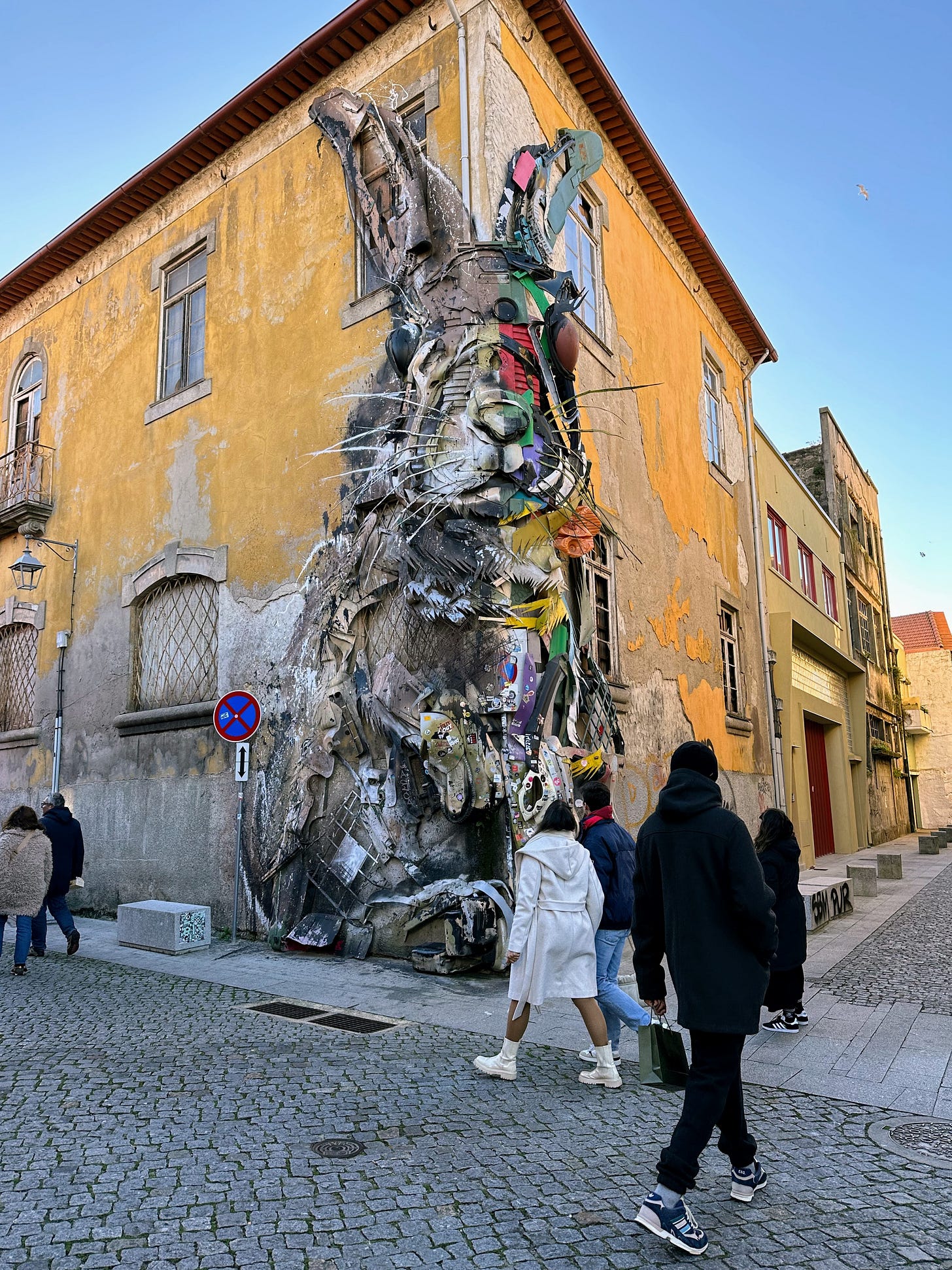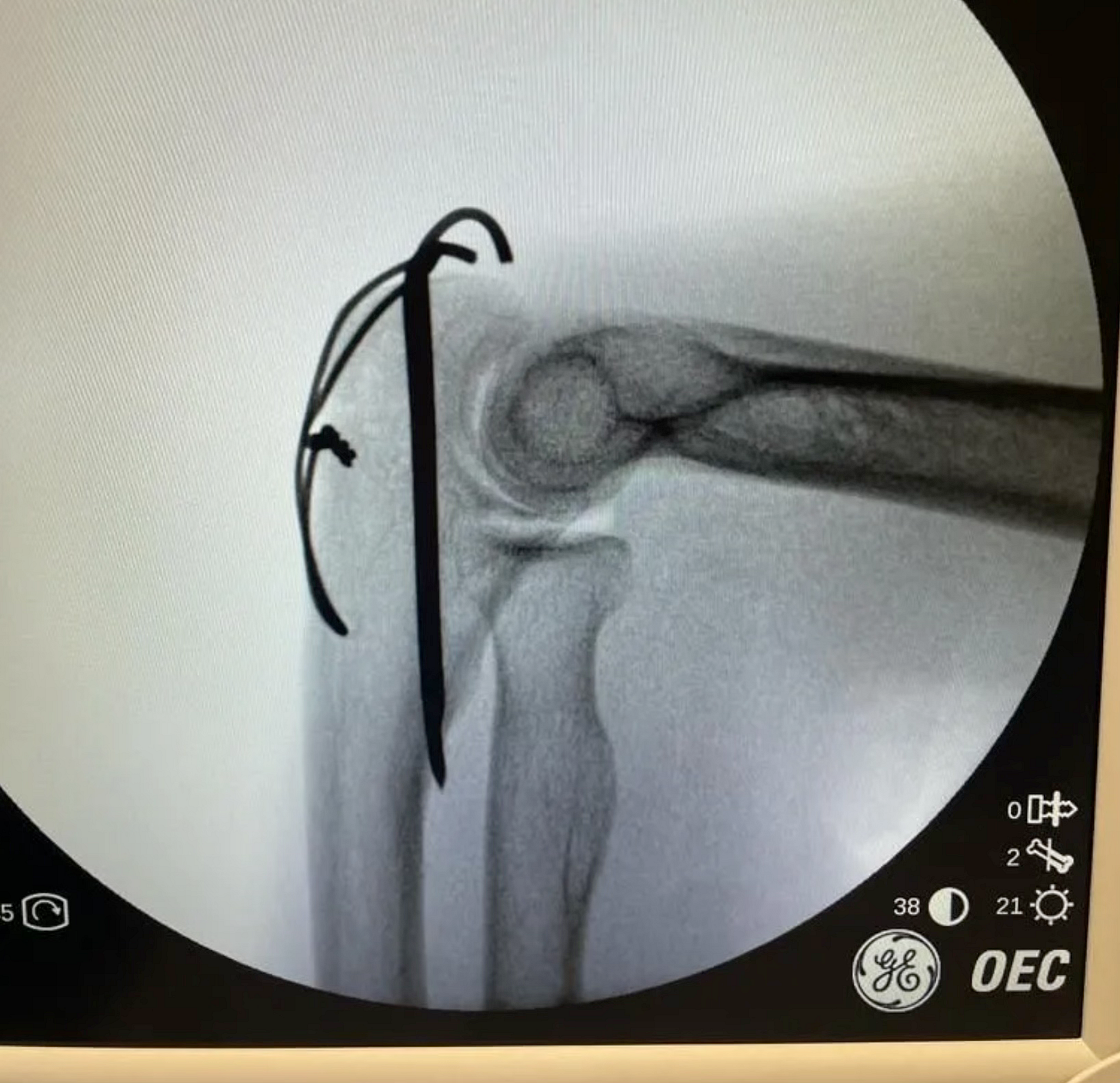Can I Move to Portugal?
Should I move to Portugal...
Denise and I moved to Portugal on New Year’s Eve 2020. We had never visited Portugal.1 We thought after 3-5 years, we would return to the US. However, we don’t plan to ever return to the States.

So Much to Say
There are over 400 posts on this website. A magnifying glass on the homepage allows you to search … but few use it. I know my readers don’t have time to start at the beginning and read every single post … besides, rules change, so some of the information is dated..
That is why, today, I share a synopsis of information for those considering moving to Portugal. We will review
Requirements for the most common temporary residency visas;
What it costs to live in Portugal;
What I’ve learned about medical care in Portugal;
Some frustrations we have experienced; and
Why we intend to stay!
Current Visa Requirements
Let me offer two caveats before we begin. First, I am writing this in December 2024. Many of the income requirements for Portuguese visas are tied to the Portuguese minimum wages. If you are reading this in 2025, please check Portuguese government sites or vfsglobal for updated information. In addition, Portugal offers a D1 Work Visa, a D4 Study Visa, and a D6 Family Reunification Visa (available to spouses, dependent children, and dependent parents of Portuguese citizens). For information on these visas, please follow the links provided.
The D7 Retirement/Passive Income Visa
If you can prove you have a minimum of €820/month of passive income (rental, investment, social security, and/or pension income), you may qualify for a D7 visa.2 You will need to jump through some hoops and pay a modest fee. It will likely take you 2-3 months to get your application together and then allow another 1-3 months for processing. If approved, you may remain in Portugal for 2 years, and this can then be renewed at three-year intervals. After 5 years, you can apply for either citizenship or permanent residency, assuming you can pass the language competency requirement. While a temporary resident, you are required to stay in the country for 18 months over each two-year period. To complete the application you will need:
A NIF (kind of like a Portuguese social security number) and a Portuguese bank account. You can satisfy this requirement either during an exploratory visit to Portugal or through an online service. One such agency is Bordr. (We did NOT use this company, but have heard many good things about them.)
You will need a clean criminal record, be fingerprinted, and have a FBI background check.
You will need a US Passport, with pages available for your visa, and 2 passport photos.
You will need at least 6 months of medical “traveler’s” insurance. We used Swisscare.
You will need a place to live in Portugal. This means you need to buy or rent a place for 12 months. Unless you have spent a lot of time in Portugal, we strongly recommend you rent. This is one of the most difficult areas to manage. Many Portuguese realtors have little formal education in their field, there is no single online multi-listing service, and like many parts of the US, there is a housing crisis. There are companies such as PortugalthePlace to assist you, but we do not have any experience with this company. This Substacker does.
To prove your income, approximately €1000/month is needed, you will need to print out copies of your bank statements, investment accounts, social security or pension statements, etc.
Finally, you will need to complete an application, a letter about why you want to move to Portugal, and, if possible, obtain a reference letter.
Some of these items need to be notarized, … frankly, it can get a bit confusing. However, there is help. If you want the assistance of a relocation company we recommend RelocateToPortugal. There is also a Facebook group that has a well-established track record of helping Americans migrate to Portugal. Check out: American & Friends PT.
D8 Digital Nomad Visa
If you are a freelancer or can work remotely for a non-Portuguese company, you may qualify for a D8 visa. You will need to jump through the hoops listed above. Instead of passive income, you must prove an income of 4 times the Portuguese minimum wage (i.e. €3,280/mo. in 2024 and €3480/mo. in 2025). While typically granted for one year, it can be renewed, and after 5 years citizenship or permanent residency is available if you can meet the language requirement.
D9 Golden Visa
The Portuguese Golden Visa program has been modified significantly over the last few years. The costs are not insignificant, so permit me to summarize them below:
You can either contribute €250,000 to a Portuguese Heritage Project or invest €500,000 in a qualified Portuguese fund, business, or research and development project.
Your application fee will be €7730 per person, plus a processing fee of €773.74. Your visa is good for two years.
Your visa renewal fee (after two years) will be €3866 per person.
Given the fees above, you may be asking why someone would do this. For most people, it comes down to where they want to live. A D7 visa requires spending most of your time in Portugal … the Golden Visa does not. A Golden Visa holder need only spend 2 weeks every two years in the country. This means their travel is not restricted, and they do not have to become a tax resident of Portugal.
Can I Afford to Live in Portugal?
The simple answer for the “average” American is yes. Let’s compare:
The median monthly income in the US is $6717. The median monthly income in Portugal is approximately $1534 (I show this in USD based on current exchange rates so you can easily compare the numbers).
The median after-tax monthly income in the US is $5353. The median after-tax monthly income in Portugal is approximately $1227.
The median US monthly Social Security income is $1784
Now, given the increases in the cost of housing, you may find it easier to find affordable housing in Tomar than in Lisbon.3 You may need to go without a car and utilize public transportation … lots of people do. You may have to save up for a bit to have the roughly $10,000 you need to deposit in a Portuguese bank. But the “average” American can afford to live in Portugal … in fact, we estimate that our monthly costs are 25-30% less than when we lived in America.
What About Medical Care?
I am generally a pretty healthy person … but I have had a few encounters (preventative and other care) since moving to Portugal. If being able to afford good healthcare is important to you, please read the following:
Here is what it cost to fix my broken elbow after falling off my electric bike.
Here I explain my first visit to a physician after breaking my arm, and here I explain my first surgical experience.
Next, I had foot surgery.
Of course, I have also had preventative health care and dental care.
You may also be interested in reading about mental health services and why Portugal is not dopesick.
Here’s the bottom line: we pay about the same for our private health insurance in Portugal as we paid for Part B in the US.4 We are treated by physicians and nurses who have good English language skills. We have found that healthcare professionals spend more time with us during the visit, and are more accessible after the visit. We are very satisfied with the care we have received!
It’s Not All Rainbows and Skittles
Of course, there will always be challenges when you move to a new country. As any Portuguese citizen will tell you, “O português é uma língua muito difícil de aprender” (Portuguese is a very difficult language to learn.) I have written lots of posts about our attempts to learn Portuguese. If you are planning to move to Portugal I encourage you to start using apps before you arrive.
If, like us, you are crazy and intend to renovate a home in Portugal, I suggest you read every one of the posts listed here. If you rent or buy an existing home in Portugal, you may find the bedrooms are smaller than you had in the States; there typically isn’t a clothes dryer, central heat/air is virtually non-existent, and due to high humidity, homes can be damp.
There will be many frustrating moments because the Portuguese have a different sense of time than most Americans. You may experience frustration when you turn in your driver’s license or worse yet, your spouse’s driver’s license. You will very likely become frustrated when you deal with Portugal’s new immigration agency AIMA. The fact is, a lot of agencies, policies, etc. don’t make perfect sense or work perfectly the first time in the US either. But if you were born in the US, you know the language … you are familiar with the system … or, you don’t hesitate to ask someone for help!
Embracing Your New Home
Some Americans bitch and complain when they can’t find their favorite brand in the supermarket. Some run to the British/American store in search of cranberry sauce. Others will complain that the Portuguese are always late or that Amazon.es is not as good as Amazon.com. Ya-da-ya-da-ya-da….
And, not to be ignored is the fact that Portuguese taxes are much higher than US taxes. So why would an American who could afford to live in the US choose to live in Portugal? We are often asked this question. I reflected on this question after our first, second, and third year in Portugal. For us, and many others, it comes down to quality of life. It may be hard to define, but you know it when you experience it.
Até breve,
Nanc
We moved to Portugal during a pandemic because (a) a lot of publications were trumpeting its virtues, (b) they offered a tax scheme that enabled us not to pay Portuguese income taxes for 10 years (which is no longer available), and (c) they made it fairly easy.
This amount corresponds to the Portuguese minimum wage. For 2025, that amount will increase to €870.
If you intend to buy, please note that Portugal (like other EU countries) limits the age at which someone must pay off their mortgage. If you think you will need a mortgage, please read this post.
Once we decided we would not return to the US we canceled our Medicare Part B coverage.






Another great post! We've been in Portugal for a little over 2 years now. In fact, our initial residency permit cards expire this week. That's one of the downsides, the occasional bureaucratic tangles, as we wait for a chance to renew. Fortunately, the Portuguese government has extended all permits and visa until June 30, 2025, but it does limit our travel options a bit. ¯\_(ツ)_/¯
Great recommendation for Relocate to Portugal. They helped with our visa, our residency permit, and also with the purchase of our home here in Braga. Their website has pricing for all their services, so no surprises. Anyone who hire's a lawyer for their visa work is making a massive mistake, when there are agencies like RTP who do a much better job at a much better price.
Minor point regarding the NIF. There really isn't a US equivalent; the social security number comes close, but there are some important differences. First, Portugal also issues a social security number called the NISS for accessing those benefits and, if working, to track your payments into the social security system here. So here, you have a tax ID number and a social security number, where in the US, one number pulls double-duty. Also, your NIF is safe to share and not a fraud vector like it can be in the US.
Finally, about learning the language. That's a tricky process, and any attempt to learn prior to moving, or shortly after you arrive in Portugal will almost certainly fail. Apps and online courses are great, but for most folks moving to a new country, there is so much else going on that a self-paced language course will always get derailed by all the other important & time-consuming work going on during that time. Still worth trying, as you will at least learn a few things, but don't beat yourself up for falling short. Once you've settled in, look for the Portuguese PLA language program sponsored by the Portuguese government. Free, and lasts about 6 months with in-person classes twice a week, 3 hours per class. A total of 150 hours of class time. These classes start in September, so check for local options at the beginning of the summer to sign up, as they do fill up fast. The course is broken up in 6 25-hour segments, each segment has a test. Pass all 6 tests, you earn your A1/A2 certificate which is valid for citizenship or permanent residency.
"Quality of life – It may be hard to define, but you know it when you experience it."
Perfectly put, Nancy!
I'm coming up on two years here now and that sums things up perfectly.